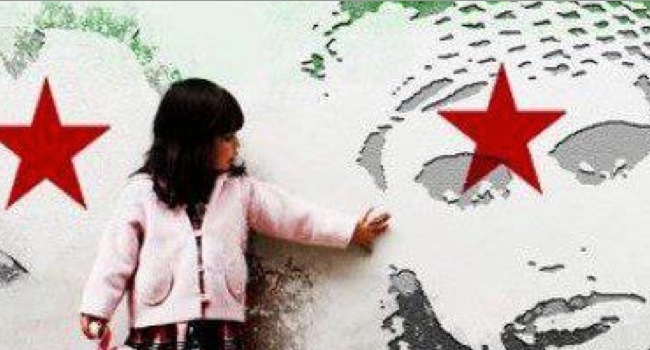Stories From Syrian Refugees

Sabreen Shalabi, a Syrian-American activist from Irvine, California, was visiting Egypt this summer when she met one of the Syrian refugees displaced by the war.
“The second I walked to reclaim baggage at the airport I found Syrians that were unable to return Syria and unable to enter Egypt, remaining trapped in a building,” she wrote in a message to Neon Tommy, “That is when I started hearing personal stories of how people ended up outside of Syria and all of the atrocities of the regime. On October 6, I decided to live in a city in Egypt that is primarily Syrian Refugees, and began meeting many Syrians. “
Shalabi decided to start a blog, Syrian Refugee Stories, where she collected the personal accounts of the refugees she met. Here are three of those stories, chosen by Shalabi to share with Neon Tommy. This is the first in our new series, told to reporter Sabreen Shalabi in March 2013.
Prison
Swinging back and forth, Mohammed felt the excruciating pain for the first two hours before his body turned numb.
Hanging from a high ceiling, both of Mohammed’s arms were chained leaving him midair. Every hour or so, a soldier would walk in, push his body, and he would begin rocking back and forth again. The first few times the solider would push his body, the pain would restart, and due to its extremity, he would pass out. The room was dark, somewhere underground, and you could smell bodies that had died under torture.
At night all he would hear is screaming, as new forms of torture were being tested on new victims. The soldiers would only unchain him on two occasions; to give him water or to beat him until he went unconscious. His eyes would open to only find himself re-chained and hanging from the high ceiling again, rocking back and forth.
One year and seven months before, Mohammed was running a successful business in the United Emirates. Once he heard the regime was using violence against the people, he left the United Emirates to join his family. After he returned to his homeland, regime military airstrikes consumed the skies of his village, Homs. Weeks turned into months and the regime would not stop, killing hundreds. Many of Mohammed’s friends and family died in those airstrikes, and that is when he decided to join the Free Syrian Army.
The Free Syrian Army went from village to village trying to fight the regime, and stop the death of innocent people. While the regime owned heavy firepower like tanks, helicopters, jets, the Free Syrian Army continued to fight with whatever guns they could get a hold of. They lived in mountains with little food and supplies.
One night, the regime found a group of them.
Mohammed and his friends were sleeping when the regime soldiers raided their camp. All ten of them were taken in the darkness of the night to the worst prison in the country. Mohammed said that everyone knew that once a person was taken to this prison, they were either going to return a fraction of what they were, or they would never return at all.
Mohammed recalled his first steps into the prison. The smell of death and dismal sounds of struggling prisoners were overwhelming.
“I was ready to become a martyr,” he said. “I just wished they would kill me already.”
Death was an escape, and if you were lucky, you died quickly.
But they didn’t.
For four months he was kept alive to be tortured. Never letting him rest, every day becoming more painful than the day before it.
Until one night, he heard a struggle happening outside the prison doors.
The Free Syrian Army had come to attempt to free prisoners. They found and unchained him, and two of them carried him to a camp they had set up.
Of the ten they captured that night, only he had survived. Once they arrived at the camp, Mohammed fell unconscious as doctors tried to keep him alive. Two days later, Mohammed woke up to find himself in the presence of his friends. Each of his friends looked to the other, deciding who would be the one to tell him the devastating news.
While he was in prison, his mother had been killed. Mohammed felt a pain in his chest that he had never felt before, pain so strong he began to cry. He lost everything and now he lost the most valuable person in his life.
With the news, his friends from the FSA also told him he could no longer be in the country and that they had planned his escape.
“You have to leave tonight,” he was told.
Without even a chance to mourn, or attend his mother’s burial, he was escorted out of the country into Lebanon. Two weeks later he would fly to Egypt.
“I can’t even look at anyone who supports the regime, they took everything from me, but we will win,” said Mohammed.
Check back for the next story in our series.



